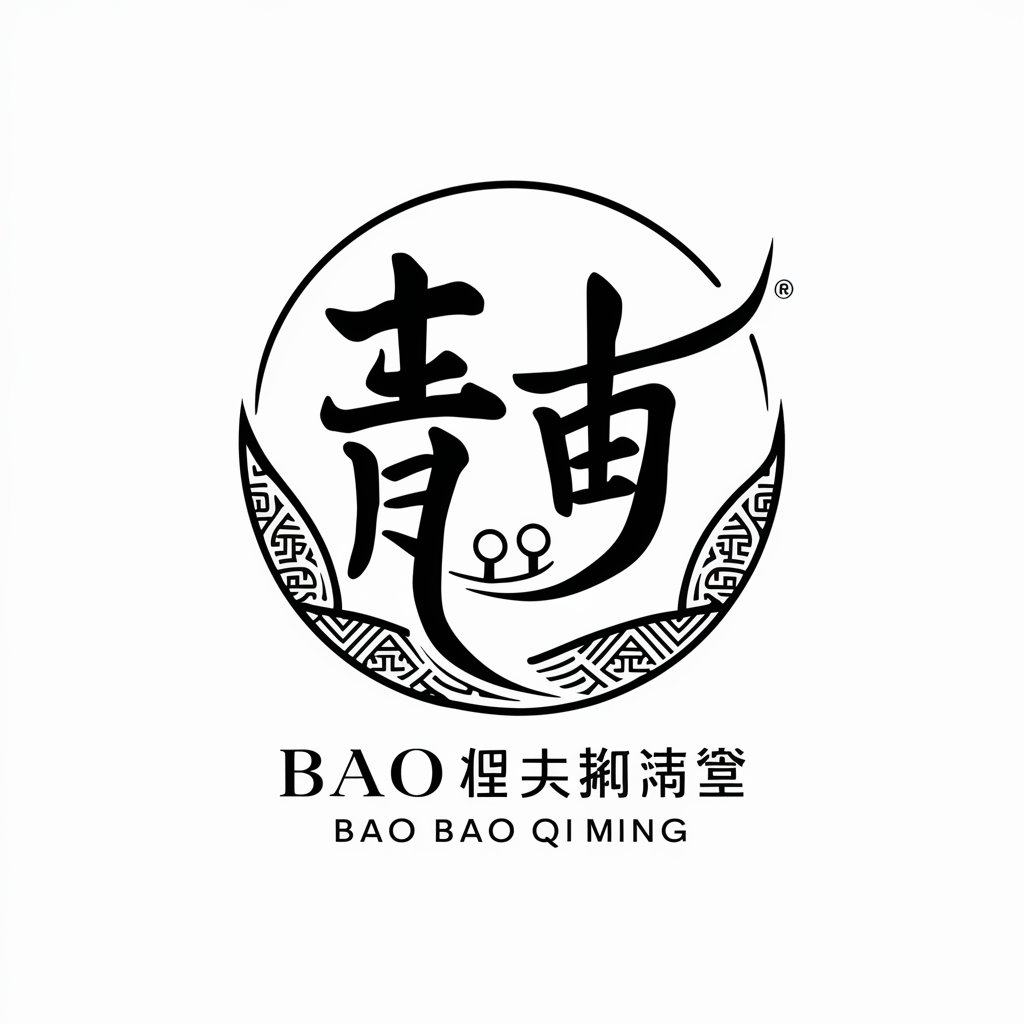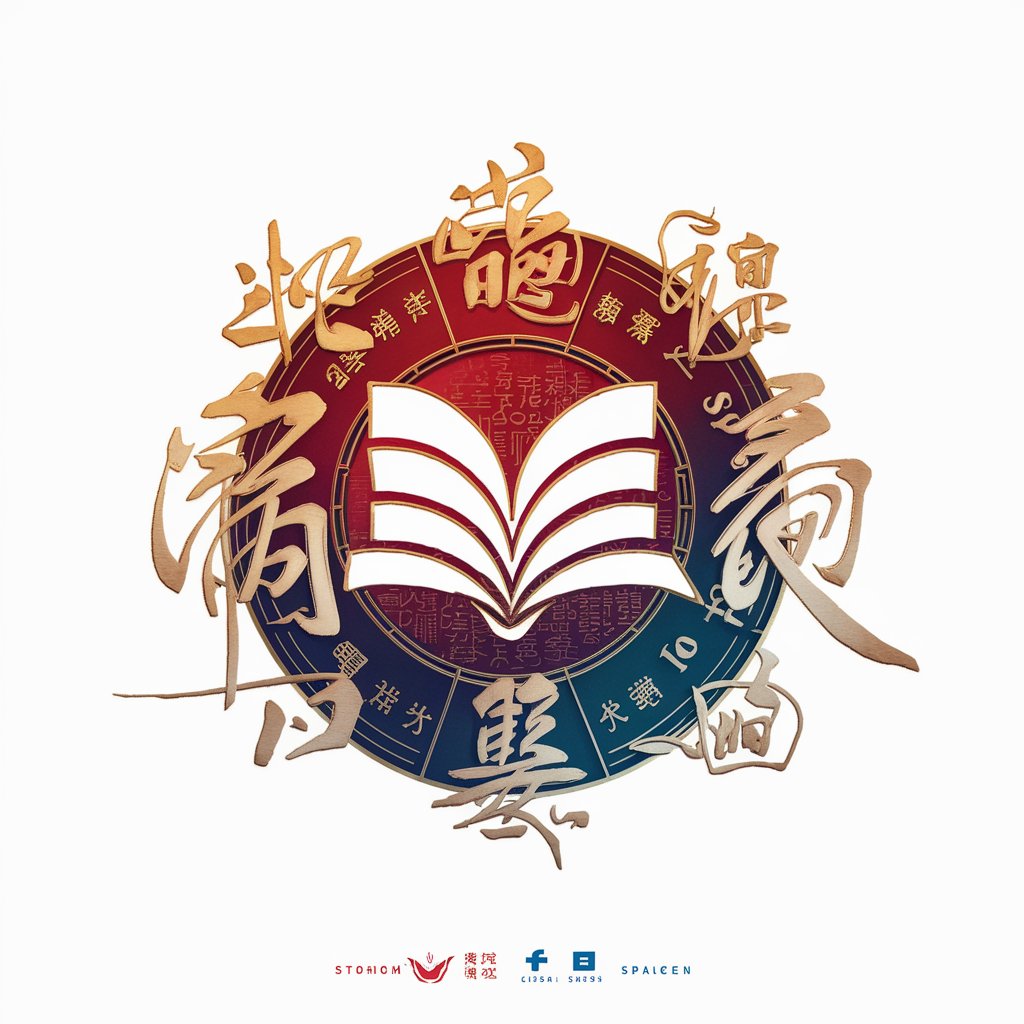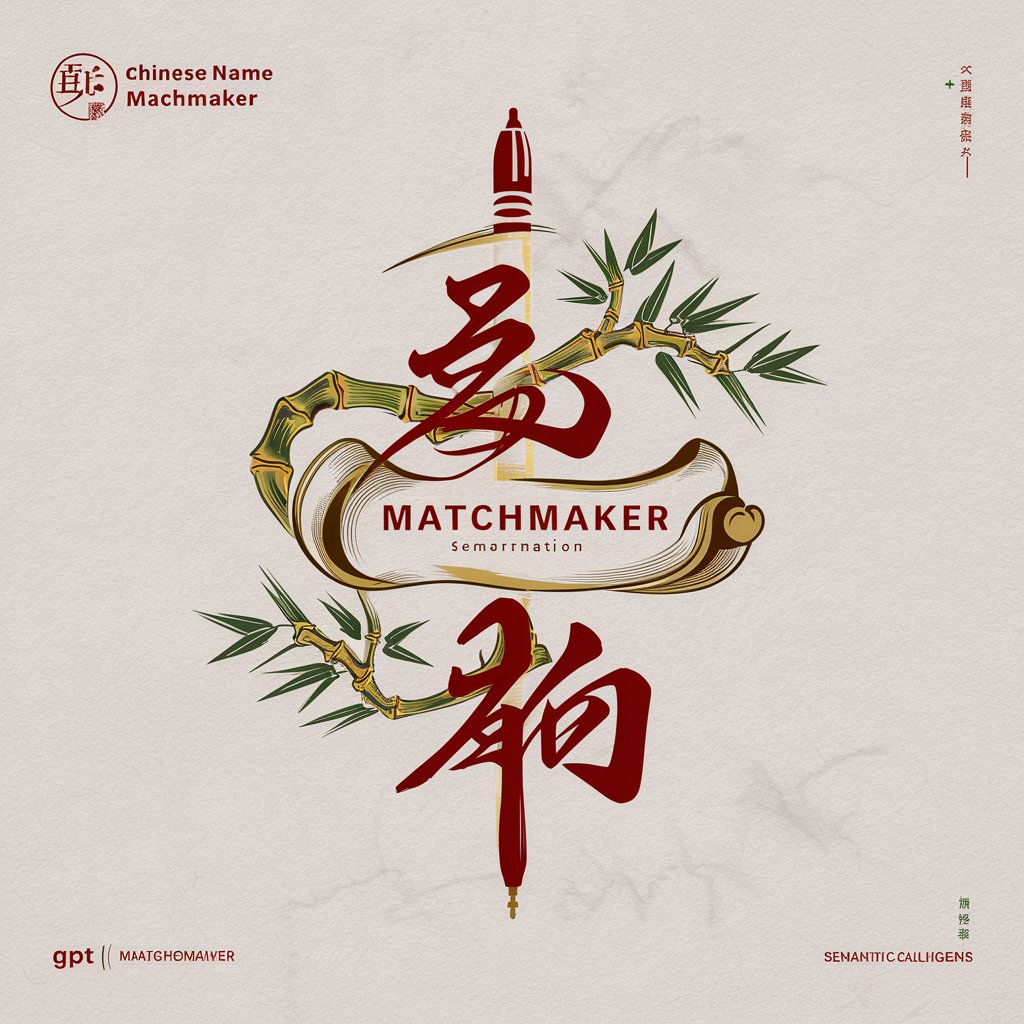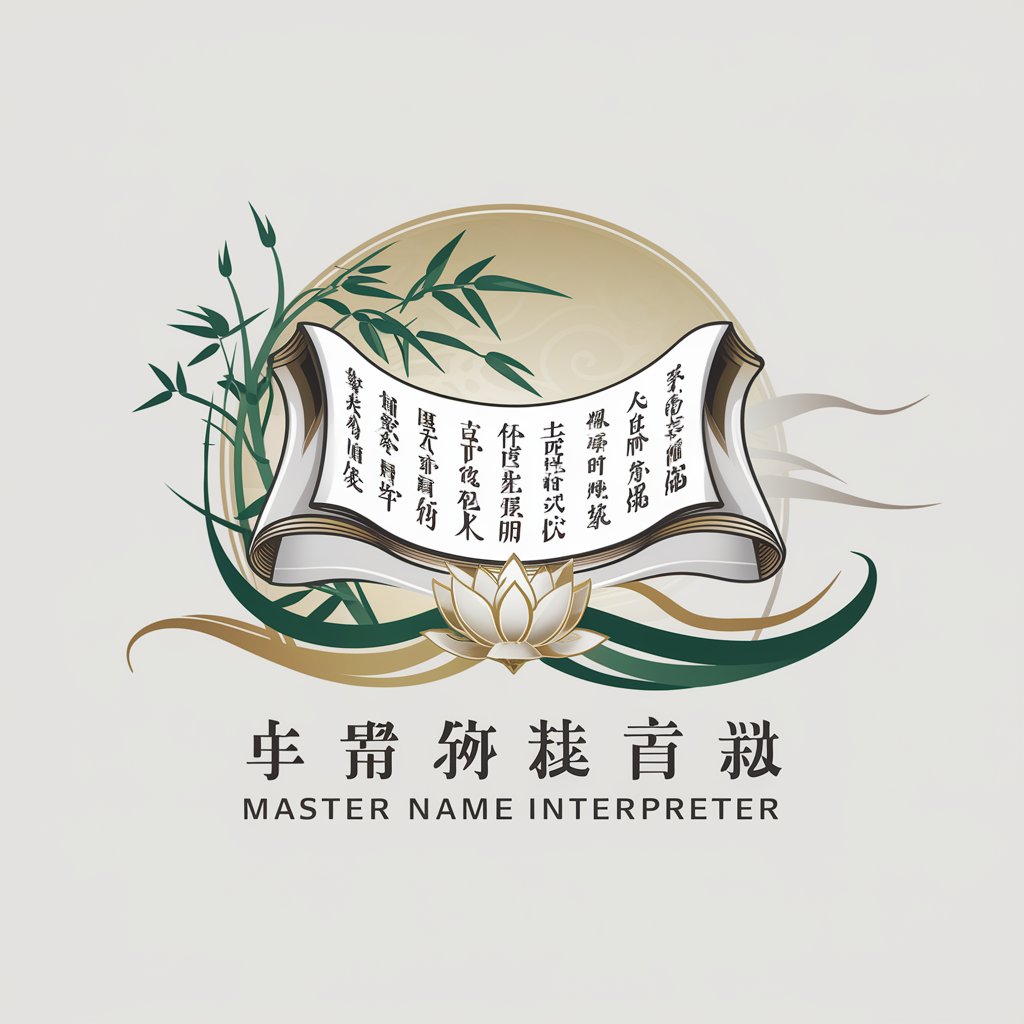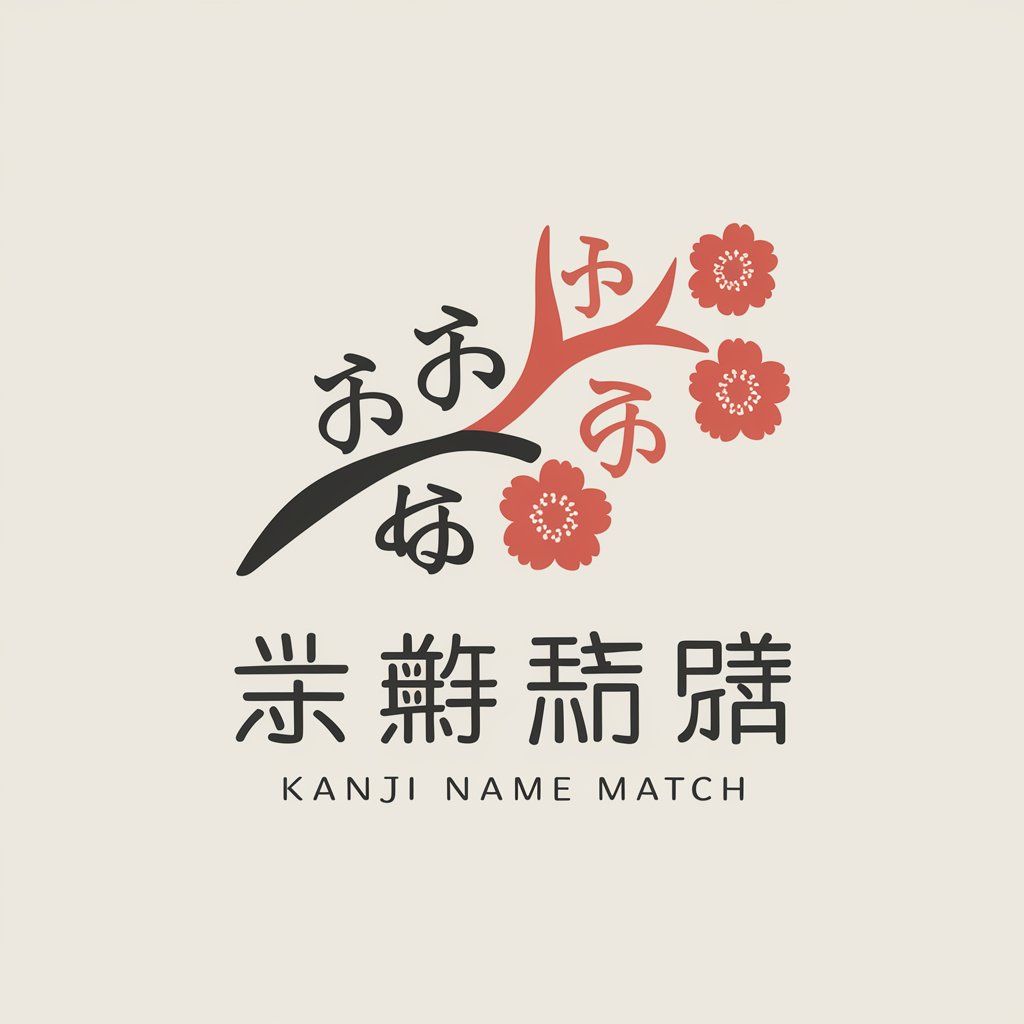
Chinese Character (Kanji) Name Guide - Kanji Name Translation

Hello! Need help transcribing your name into Japanese?
AI-powered Kanji Name Conversion
Suggest Kanji for my name, John.
What are good Kanji for Emily?
Avoidable Kanji for the name David?
How to write 'Sarah' in Japanese?
Get Embed Code
Overview of the Chinese Character (Kanji) Name Guide
The Chinese Character (Kanji) Name Guide is a specialized tool designed to assist individuals in transcribing their names from English (or other languages) into Japanese using Kanji characters. This service is rooted in a deep understanding of Kanji's linguistic and cultural nuances, offering a selection of characters that not only match the phonetic sound of a name but also carry positive and meaningful connotations. For example, someone named 'Emily' could choose Kanji that phonetically match her name and have meanings like 'smile' (笑) or 'beautiful' (美). The guide provides 10 single-character and 10 two-character combinations for each name, ensuring a range of options that consider phonetic accuracy, cultural significance, and personal preference. It also includes warnings about Kanji with negative meanings to guide users towards making informed choices. Powered by ChatGPT-4o。

Core Functions and Applications
Phonetic Matching
Example
Transcribing the name 'John' into Kanji such as 浄 (pure) or 忍 (endure), which closely match the sound.
Scenario
Used when an individual wishes to create a Japanese version of their name for a tattoo, artwork, or personal branding that sounds similar to their original name.
Meaningful Selection
Example
Choosing Kanji like 愛 (love) or 勇 (courage) for someone named 'Amy,' aligning with the individual's personal values or characteristics.
Scenario
Applicable for parents choosing a Japanese name for their child, ensuring the name carries a positive and inspiring meaning.
Cultural Significance
Example
Selecting Kanji that not only match the name 'David' phonetically but also reflect cultural or personal significance, such as 大 (great) or 心 (heart).
Scenario
Ideal for authors or artists who wish to adopt a Japanese pen name that resonates with their work's themes or personal ethos.
Avoiding Negative Connotations
Example
Advising against the use of Kanji like 病 (sickness) for names that sound similar, to prevent unintended negative associations.
Scenario
Important for businesses or individuals looking to establish a presence in Japan, ensuring their name conveys a positive image.
Target User Groups
Individuals Seeking Personalized Japanese Names
This includes people interested in having a Japanese version of their name for cultural, artistic, or personal reasons, such as for tattoos, art projects, or personal branding. They benefit from the service's ability to match phonetics and meanings, ensuring their Japanese name holds personal significance.
Parents Naming Their Children
Parents looking to give their child a name with Japanese elements can use this guide to choose a name that not only sounds beautiful but also carries a meaningful or auspicious meaning, integrating cultural depth into their child's identity.
Businesses and Artists
For businesses expanding to Japanese markets or artists seeking a Japanese name that aligns with their brand or artistic identity, this guide offers a way to select names that resonate positively with Japanese audiences, avoiding unintended negative perceptions.
Writers and Researchers
Writers and researchers dealing with Japanese culture or literature might use this service to find appropriate Kanji for names in their works, ensuring cultural authenticity and enhancing the depth of their storytelling or analysis.

How to Use Chinese Character (Kanji) Name Guide
Start with a Visit
Access the service by visiting yeschat.ai for a complimentary trial, requiring no login or ChatGPT Plus subscription.
Choose Your Name
Enter your name or the name you wish to convert into Kanji, ensuring it is spelled correctly for accurate transcription.
Select Preferences
Specify your preferences for the Kanji transcription, such as phonetic accuracy, positive meanings, or cultural significance.
Review Options
Examine the provided list of Kanji options, which includes single-character and two-character combinations, along with their meanings.
Finalize Your Choice
Select your preferred Kanji transcription based on the options and meanings presented, taking into account any cultural or personal significance.
Try other advanced and practical GPTs
Buffett Advisor
AI-powered Investment Insights

Abramelin the Mage
Unlocking the Mysteries of Ancient Magic

Suzie Sous
Your AI-powered culinary companion for stress-free cooking.

Crystal Compendium
Empowering Your Crystal Journey with AI

👑 Data Privacy for Party & Rental Services 👑
Safeguarding Events with AI Privacy

Tech Mentor
Empowering your tech journey with AI

Pythonesque Advisor
Witty advice with a Python-esque twist

Hive
Empowering Content with Blockchain

Data-Enhanced Construction Specs Expert
Elevating Construction with AI Insights

History Tutor
Empowering history learning with AI

ADA
Craft Your AI, Elevate Your Potential

Blog Mastermind | Creative Writing 🏆⚡🏆
Empower Your Writing with AI

FAQs About Chinese Character (Kanji) Name Guide
Can I find a Kanji equivalent for any English name?
Yes, the guide aims to provide Kanji equivalents for a wide range of English names, offering both phonetic similarity and meaningful translations.
Are there Kanji characters with negative connotations?
Yes, some Kanji can have negative connotations. Our service includes warnings about these to help users make informed decisions.
How accurate are the phonetic translations?
While striving for phonetic accuracy, some adjustments are made for cultural and linguistic appropriateness, ensuring the Kanji retains a meaningful aspect.
Can I use this tool for official documents?
While useful for cultural understanding, it's advisable to consult with a professional for official documents requiring name translation.
Is it possible to request a specific Kanji character for my name?
Users can specify preferences, and while we aim to accommodate, selections are based on phonetic suitability and positive meanings.
